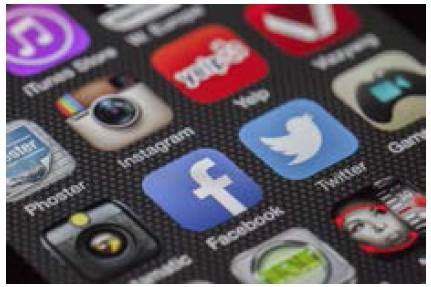Serviços Personalizados
Artigo
Indicadores
Links relacionados
-
 Citado por Google
Citado por Google -
 Similares em Google
Similares em Google
Compartilhar
South African Dental Journal
versão On-line ISSN 0375-1562
versão impressa ISSN 0011-8516
S. Afr. dent. j. vol.74 no.8 Johannesburg Set. 2019
COMMUNIQUE
The new word of mouth - social media in dentistry
KC Makhubule
Chief Executive Officer, The Dental Association of South Africa

We have all heard by now about the Fourth Industrial Revolution (4IR) and sometimes called 4.0. Recently the term has been popularised by the President of the Republic of South Africa, President Cyril Ramaphosa.
Whether for good or bad, we are on the path of a technological revolution that is radically shaping the way in which we relate to the world and to one another. What is 4IR?
The 4IR is characterised by technologies that include robotics, the Internet of things (IOT), artificial intelligence (AI) and big data. While in a manufacturing context these technologies are shaping the 'factories of the future' (a Web of interconnected machines creating products that are pre-programmed, while all the time uploading process data, completely without the involvement of any humans), these same technologies are also impacting most other industries and dentistry is not immune.
That is the big picture. On a smaller scale is the use of social media in dentistry, particularly for Marketing and Public relations purposes. There is no doubt that for decades, the dental community has relied almost exclusively on reputation and word of mouth marketing to help build their practices.
The profession has to learn some form of social media, whether it's Facebooking, Twittering LinkedIn, blogging, video marketing, Youtubing, paid social ads or even podcasts. The reason? That's where the dentistry-specific community is - your patients, colleagues, sup-
pliers and other professionals with whom we seek to collaborate. I can assure you that they are listening, watching and if you are not there, its not you they will remember when they need dental services.
Therefore, if your business doesn't have an online presence, it may be practically invisible to the majority of potential patients in your community.
Social Media is the new word of mouth
While television, radio, and print media still own a lion's share of marketing dollars, word-of-mouth referrals are still the most effective and trustworthy way to acquire new patients. In today's increasingly digital world, that word-of-mouth referral is more likely than ever to come from a social media platform. Have a look at some staggering information, based on various separate studies, about social media advertising:
• 75.3% of people admitted that they purchased a product or service because they saw it on some form of a social media platform.
• 61% percent are likely to trust information posted by providers;
• 42% look for other consumer's reviews of health-related providers, products, services, and experiences;
• 41% are likely to share with providers via social media
• 32% review family and friends' experiences;
• 29% look for other patients' experiences with the same disease or condition; and
• 24% watch health-related videos or images posted by patients

Social Media can help or hurt your practice and your professional career
Now for every opportunity, one has to accept that there are risks which we need to navigate. Social media is meant as a public forum, and it needs to be treated like one or else it may hurt your professional career and or practice. Health Practitioners need to take special care about how they engage in social media.
Their actions might reflect their ability to inspire trust in a general public that requires dependable, quality care and or breach ethical and professional conduct.
Whilst we are at it, let's define advertising for our own purposes: According to the Health Professions Council of South Africa (HPCSA), in relation to any health establishment, orthodox medicine, complementary medicine, medical device, scheduled substance or health-related product or service, "advertising" refers to any written, pictorial, visual or other descriptive matter or verbal statement or reference in respect thereof that appears in a newspaper, magazine, pamphlet, website, social media space or other publications; or it is distributed to members of the public or is brought to the attention of members of the public in any manner.

The intention is to promote the sale of the orthodox medicine, complementary medicine, medical device, scheduled substance or health-related product, or to direct the public to any particular health establishment or health-related service.
Currently there are no clear regulations on the use of social media by health practitioners, but there are key ethical and professional guidelines which one can follow to avoid falling foul of the law.
I intend delivering giving key lectures on Social Media Marketing for the Oral Health Professional in the very near future. Hopefully I shall be able to impart some knowledge that can help you in your professional career and practice.














